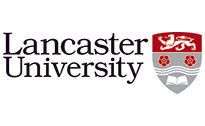
Master's Certificate in Project Management Process Groups - Initiating, Planning, Executing, Monitoring & Controlling and Closing (PMP Workshop 1, 2, 3) Preparing for PMP®, PMI-SP, PMI-RMP, CAPM - Certified Program
Course ID: 2508180101227EGI
Course Dates : 18/08/25 Course Duration : 15 Studying Day/s Course Location: London, UK
Language: Bilingual
Course Category: Professional and CPD Training Programs
Course Subcategories: Leadership and Management Excellence
Course Certified By: * Projacs Academy
* Professional Training and CPD Programs
Certification Will Be Issued From :
KSA
Course Fees: £13,361.27
Vat Not Included in the price. VAT may vary depending on the country where the course or workshop is held.
Click to Pay
Date has passed please contact us Sales@e-s-hub.com
Course Information
Introduction
Project management has evolved into a cornerstone of organizational success, enabling businesses to navigate complex challenges, allocate resources effectively, and deliver value within defined constraints. The five process groups—Initiating, Planning, Executing, Monitoring & Controlling, and Closing—are foundational frameworks that guide project managers through the lifecycle of any initiative. These process groups, as outlined by the Project Management Institute (PMI), provide a structured approach to managing projects, ensuring alignment with strategic objectives while addressing risks, stakeholder expectations, and operational demands.
Despite the widespread adoption of project management methodologies, many organizations face significant gaps in their ability to execute projects successfully. According to the Standish Group’s CHAOS Report, only 35% of projects are completed on time and within budget. This alarming statistic underscores the need for professionals who can master the intricacies of project management process groups. Miscommunication, inadequate planning, and poor risk management are common pitfalls that this course aims to address, equipping participants with tools and techniques to overcome these challenges.
The benefits of mastering project management extend beyond individual career advancement. Organizations that invest in developing skilled project managers often experience improved efficiency, higher profitability, and enhanced stakeholder satisfaction. For instance, a case study of a multinational technology firm revealed that after implementing PMI-aligned practices, the company reduced project delays by 20% and increased client retention rates by 15%. Such outcomes highlight the transformative potential of effective project management when applied strategically.
This course draws upon established theories such as the PMBOK® Guide (Project Management Body of Knowledge) and integrates industry trends like Agile and hybrid methodologies. By blending traditional frameworks with modern practices, participants will gain a comprehensive understanding of how to adapt to dynamic environments. Additionally, the program emphasizes practical applications, ensuring that theoretical knowledge translates into actionable insights.
Consider the example of a healthcare organization tasked with implementing an electronic medical records system. Without proper initiation and planning, the project could face scope creep, budget overruns, and resistance from end-users. However, a project manager trained in the five process groups would be equipped to define clear objectives, engage stakeholders, and monitor progress systematically, ultimately driving successful implementation. Real-world scenarios like this demonstrate the critical role of project management in achieving tangible results.
In summary, this course is designed to empower professionals with the skills and confidence needed to excel in project management roles. Whether preparing for certifications such as PMP®, PMI-SP, PMI-RMP, or CAPM, or seeking to enhance workplace performance, participants will emerge with a robust toolkit to tackle real-world challenges. By bridging the gap between theory and practice, this program positions individuals and organizations for sustained growth and competitive advantage.
Objectives
By attending this course, participants will be able to:
Analyze the five project management process groups and their interdependencies to ensure seamless project execution.
Design comprehensive project plans incorporating scope, schedule, cost, quality, and risk management strategies.
Evaluate stakeholder needs and develop tailored communication plans to foster collaboration and mitigate conflicts.
Implement monitoring and controlling mechanisms to track project performance and address deviations proactively.
Apply closing procedures to formalize project completion, capture lessons learned, and transition deliverables effectively.
Synthesize best practices from PMBOK® Guide, Agile, and hybrid methodologies to adapt to diverse project environments.
Prepare for internationally recognized certifications such as PMP®, PMI-SP, PMI-RMP, and CAPM by mastering exam-relevant content.
Who Should Attend?
This course is ideal for:
Project managers seeking to enhance their skills and prepare for professional certifications.
Team leaders and supervisors responsible for overseeing project teams and deliverables.
Consultants and contractors involved in delivering projects across various industries.
HR and operations professionals tasked with aligning projects with organizational goals.
Educators and trainers aiming to incorporate project management principles into their curriculum.
Training Method
• Pre-assessment
• Live group instruction
• Use of real-world examples, case studies and exercises
• Interactive participation and discussion
• Power point presentation, LCD and flip chart
• Group activities and tests
• Each participant receives a 7” Tablet containing a copy of the presentation, slides and handouts
• Post-assessment
Program Support
This program is supported by:
* Interactive discussions
* Role-play
* Case studies and highlight the techniques available to the participants.
Daily Agenda
The course agenda will be as follows:
• Technical Session 08.30-10.00 am
• Coffee Break 10.00-10.15 am
• Technical Session 10.15-12.15 noon
• Coffee Break 12.15-12.45 pm
• Technical Session 12.45-02.30 pm
• Course Ends 02.30 pm
Course Outlines
Introduction to Project Management Process Groups
Overview of Initiating, Planning, Executing, Monitoring & Controlling, and Closing.
Key concepts from PMBOK® Guide.
Role of project managers in achieving organizational objectives.
Case study: Lessons from successful project implementations.
Day 2:
Initiating Process Group
Defining project scope and objectives.
Identifying stakeholders and analyzing their influence.
Developing project charters and obtaining approvals.
Tools for effective project initiation (e.g., stakeholder analysis matrix).
Day 3:
Planning Process Group – Part 1
Creating a Work Breakdown Structure (WBS).
Developing project schedules using Gantt charts and critical path methods.
Estimating costs and creating budgets.
Aligning project plans with organizational strategy.
Day 4:
Planning Process Group – Part 2
Risk identification and qualitative/quantitative risk analysis.
Developing risk response strategies (avoid, transfer, mitigate, accept).
Quality management planning and assurance techniques.
Resource allocation and team management planning.
Day 5:
Planning Process Group – Part 3
Communication planning and stakeholder engagement strategies.
Procurement planning and vendor management considerations.
Change management processes and documentation.
Integrating all components into a cohesive project plan.
Week 2
Day 6:
Executing Process Group – Part 1
Leading and motivating project teams effectively.
Managing stakeholder expectations and resolving conflicts.
Implementing approved project plans and deliverables.
Ensuring quality standards are met during execution.
Day 7:
Executing Process Group – Part 2
Conducting procurement activities and managing contracts.
Facilitating team collaboration using Agile ceremonies (e.g., daily standups).
Managing changes through formal change control processes.
Real-world case study: Overcoming challenges during project execution.
Day 8:
Monitoring & Controlling Process Group – Part 1
Tracking project progress against baselines (scope, schedule, cost).
Using Earned Value Management (EVM) to measure performance.
Identifying variances and implementing corrective actions.
Tools for monitoring risks and issues (e.g., risk registers, issue logs).
Day 9:
Monitoring & Controlling Process Group – Part 2
Quality audits and continuous improvement practices.
Managing stakeholder communications and addressing feedback.
Controlling changes through integrated change control systems.
Case study: How proactive monitoring saved a failing project.
Day 10:
Monitoring & Controlling Process Group – Part 3
Advanced techniques for schedule compression (fast-tracking, crashing).
Budget realignment and contingency fund utilization.
Performance reporting and dashboard creation for senior leadership.
Best practices for maintaining project momentum.
Week 3
Day 11:
Closing Process Group – Part 1
Formalizing project completion and obtaining stakeholder sign-off.
Documenting lessons learned and archiving project artifacts.
Transitioning deliverables to operations or end-users.
Celebrating success and recognizing team contributions.
Day 12:
Closing Process Group – Part 2
Post-project reviews and retrospective meetings.
Evaluating project success using KPIs and metrics.
Addressing unresolved risks and closing out contracts.
Preparing final reports for sponsors and stakeholders.
Day 13:
Agile and Hybrid Methodologies
Introduction to Agile frameworks (Scrum, Kanban, Lean).
Adapting traditional process groups to Agile environments.
Managing hybrid projects that combine Waterfall and Agile approaches.
Case study: Agile transformation in a large organization.
Day 14:
Certification Preparation – Part 1
Overview of PMP®, PMI-SP, PMI-RMP, and CAPM exams.
Key exam topics and frequently tested areas.
Test-taking strategies and time management tips.
Practice questions and group discussions.
Day 15:
Certification Preparation – Part 2
Mock exam simulation under timed conditions.
Review of mock exam results and common mistakes.
Final Q&A session and clarification of doubts.
Next steps for applying for certifications and continuing professional development.



















































